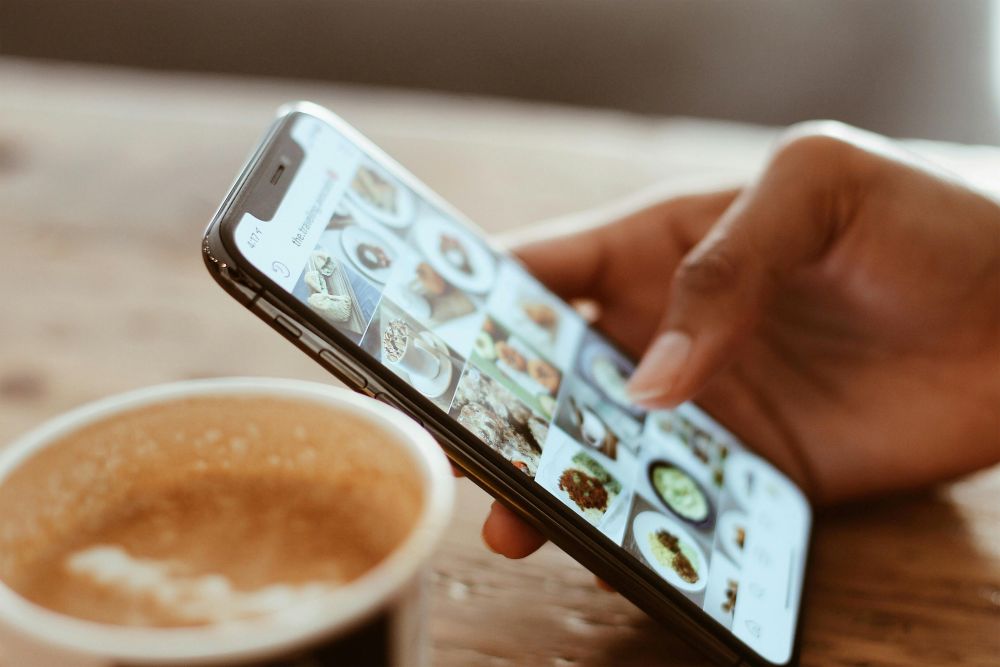Inaccurate diet information spread quickly online and promote uncertain trends.
Social media has become a powerful instrument to share ideas, opinions and trends, but when it comes to health and nutrition, this can also be a breeding ground for misinformation. Platforms such as Instagram, TikTok and YouTube are filled with posts via diet -hacks, Miracle food and quick corrections for weight reduction or prevention of diseases. While some content comes from credible sources, there is a lot of scientific support. This disabled distribution of misleading information can lead to serious health consequences.
In a recently carried out study, it was examined how the diet -related misinformation is spreading online and what effects are on public health. The researchers analyzed contributions, videos and tweets, which revealed a disturbing pattern – myths of use thrive in visually appealing formats, especially on platforms with a younger audience. Influencers and content creators, often without medical or nutritional training, promote extreme diets and non -regulated supplements. The charm of dramatic before and after transformations or promise of effortless weight loss makes these contributions to all. However, they rarely mention the associated risks.
One example is the rise of so -called “detoxification products”. Many influencers push teas, juices or nutritional supplements that claim to clean the body of the toxins. In reality, the body naturally detoxifies through liver and kidneys. In these products, scientific support often lacks and, in some cases, contain harmful ingredients that can cause dehydration or digestive problems. Despite the lack of evidence, its popularity continues to grow, especially on aggressive social media marketing.

Another widespread myth includes fasting trends that promise fast weight loss and health benefits. While controlled fasting can be safe for some people under medical guidance, extreme versions that are promoted online promote a dangerously low -calorie recording. Many followers take on these habits without taking into account long -term effects such as muscle loss, nutritional deficits and metabolic problems. If influencers show unrealistic results, the audience may feel under pressure to try risky eating patterns without understanding the potential damage.
Social media also drives misunderstandings about certain nutritional diseases. Some contributions claim that avoiding certain food groups can eliminate diseases such as diabetes or osteoporosis. While nutrition plays a role in the treatment of health, these claims often ignore scientific evidence. Cutting out entire food groups without adequate guidance can lead to serious health problems, including defects in essential nutrients. However, since these ideas are often presented in an appealing, convincing way, they continue to gain traction.
The study showed that Instagram and YouTube have platforms to spread diet myths and quickly catches Tikok. Many influencers promote certain diets or nutritional supplements to increase the commitment, increase supporters or even sell their own products. In contrast to regulated ads, these articles often have liability or factual information. Algorithms prioritize content that creates interaction, which means that misleading health claims can spread faster than accurate, science -based information.
Apart from physical health risks, the misinformation on social media can contribute to misinformation on social media to fight mental health. The constant exposure to unrealistic body standards and extreme diet trends can lead to disturbing eating behavior, including orthorexia – lead – an unhealthy obsession to eat only “clean” food. Studies suggest that younger target groups, especially teenagers, are more susceptible to these messages and increase their risk of building harmful relationships with food.
The Covid 19 pandemic emphasized the dangers of misinformation from nutrition. During this time, false claims circulated about certain foods that prevent or heal the virus. While nutrition supports general health, not a single diet can eliminate the risk of infection. Despite the efforts of the medical specialists to counter these claims, the misleading contributions continued to spread and demonstrated the urgent need for better regulation of health information online.
Removal of this problem requires measures from several perspectives. Social media companies could implement stricter guidelines to moderate content in order to reduce the spread of false health claims. Verified experts, including nutritionists and doctors, should have more visibility on these platforms to provide precise information. Users can also play a role by skeptical checking against diet trends and sources before they believe or share health -related contributions.
While social media offers a wealth of information, not everything is reliable. When it comes to health and nutrition, it is always best to search for the guidance of qualified specialists instead of relying on trends. The risks of misinformation are too high to ignore, and awareness of this problem can help to create a healthier, sound online area.
Sources:
How social media diet spreads misinformation – and what experts have to say
Disinformation about nutrition and nutrition in social networks: a review of literature



